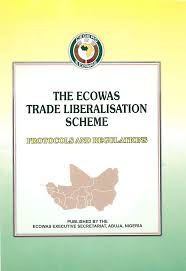The Economic Community of West African States (ECOWAS) is stepping up efforts to improve its Trade Liberalization Scheme (ETLS) after a regional meeting in Accra, Ghana, from 9–12 September 2025, which identified ongoing obstacles to intra-regional trade. The ETLS, which allows duty-free movement of qualifying goods produced within the region, is central to ECOWAS’s goal of fostering industrial development and economic competitiveness.
During the meeting, the National Committees for Community Origin Recognition (NCCOR) reviewed new rules of origin, certification procedures, and barriers to trade. Member states committed to expanding training and awareness programs—particularly for small and medium-sized enterprises—and integrating ETLS education into customs training.
Participants also urged faster implementation of the electronic certificate of origin system, introduced in 2024 to reduce fraud and simplify documentation. Despite progress since its launch in 1979, the scheme continues to face challenges such as non-tariff barriers, complex procedures, and uneven application across member states.

Potential Benefits to African Trade
Enhanced implementation of the ETLS holds significant potential for deepening regional and continental trade integration. As ECOWAS aligns its trade systems with the African Continental Free Trade Area (AfCFTA) framework, improved coordination could unlock part of Africa’s estimated $4 trillion trade opportunity.
By harmonizing customs procedures and expanding digital certification, the ETLS can reduce transaction costs, accelerate border clearance, and strengthen compliance with continental rules of origin—key steps toward a unified African market.
Greater stakeholder awareness and SME participation will also help diversify regional production bases, enabling West African industries to compete more effectively within Africa and globally. Improved intra-regional trade flows could, in turn, support supply chain development, enhance food security, and attract investment into regional value addition.
While bureaucratic bottlenecks and inconsistent implementation remain challenges, renewed political will, digital innovation, and capacity-building commitments among member states signal a positive shift. If sustained, these reforms could transform the ETLS into a cornerstone of both ECOWAS and broader African economic integration.
